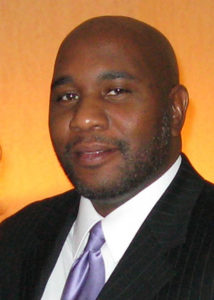
22 Apr 2020 New York Times Chooses Controversy Over Truth in Promoting Revisionist History
1619 Project, Debunked by Historians for Calling American Independence a Conspiracy to Protect Slavery, Continues to Be Marketed to Schoolchildren
The Times Is No Longer “a Newspaper of Record,” Says Black Activist, Calling It Instead “a Vicious Caricature of Its Once Respectable Self”
Washington, D.C. – Instead of renouncing the debunked 1619 Project, New York Times Publisher A.G. Sulzberger today patted himself on the back for sparking debate with a revisionist history that has been distributed to schools nationwide.
During the annual New York Times shareholder meeting, the first one ever to be held virtually, Christopher Arps, a member of the Project 21 black leadership network of the National Center for Public Policy Research, submitted this question:
The New York Times has invested significant resources in its 1619 Project, built upon the premise that everything in American history is irrevocably built on and tainted by slavery. Many well-respected historians from a wide array of backgrounds have stepped forward to challenge the premises and factual assertions of the Project, particularly the claim that U.S. independence was motivated by a desire to break from an abolitionist Britain. The Times has finally admitted its error. Will it now go back to correct the record with the vigor with which it distorted it, and ensure that schools using 1619 Project materials are not teaching falsehoods?
The 1619 Project, designed to put slavery at the center of the American experience, claims that United States independence arose as an effort to head off abolitionist efforts by Britain. Despite being disputed by eminent historians from across the political spectrum, and despite an admission from the head of the Project that she had made a mistake, this take on American history has been sent to schools around the country, where its being taught as truth.
In response to Arps’s question, Sulzberger responded:
The 1619 Project’s been widely read and praised, including by many of the nation’s preeminent historians. It also certainly has its critics, some of whom disagree with some of its conclusions. And one of the things that we’ve tried hard to do throughout the Project is simply to encourage dialogue between those with different perspectives. And we think that that debate has been of real value to the public.
The audio of the reading of Arps’s question, and Sulzberger’s response, can be heard here. Arps’s submitted question can be read here.
Arps was disturbed by Sulzberger’s answer, and responded after the meeting:
The 1619 Project is a travesty. Slavery is a part of American history, and a sad one. But it is not all of American history. All Americans of all races and backgrounds have so much to be proud of in our shared history.
What none of us can be proud of is modern attempts to warp the historical record in order to make the United States as evil as possible, and to destroy it in the minds of its people and the people of the world. That the New York Times, a once great newspaper, should lead this charge is horrifying. That the errors are aimed at schoolchildren is reprehensible. And the response today – one that completely failed even to acknowledge the corrections that the Times has been forced to make, and that failed to commit to correcting its errors for school, is beyond the pale.
This is basically how the Times answered: The 1619 Project created controversy but we found some historians who agreed with us and so as long as it spurred discussion we’re good with that. But the Times itself has admitted that it made important errors in the Project. So basically the Times said it’s ok to put out misinformation as long as it spurs a discussion? That’s absurd.
Objective newspapers do not “start dialogues” by spreading falsehoods, nor do they fail to correct their errors when forced to acknowledge them. The 1619 Project makes clear, once and for all, that the Times in 2020 is not a newspaper of record. It’s a vicious caricature of its once respectable self.
“Sulzberger and his colleagues patted themselves on the back for ‘starting a discussion,’ failing even to acknowledge that the ‘discussion’ has arisen primarily to correct the paper’s glaring errors,” added Scott Shepard, coordinator of the National Center’s Free Enterprise Project (FEP), who also attended the meeting. “This refusal does not alter the New York Times’s responsibility to recall materials, aimed at schoolchildren, that radically misrepresent American history.”
To schedule an interview with Arps, Shepard or others on this or other issues, contact Judy Kent at (703) 759-0269.
Project 21, a leading voice of black conservatives for over 25 years, is sponsored by the National Center for Public Policy Research. Its members have been quoted, interviewed or published over 40,000 times since the program was created in 1992. Contributions to the National Center are tax-deductible and greatly appreciated, and may be earmarked exclusively for the use of Project 21.
The National Center for Public Policy Research, founded in 1982, is a non-partisan, free-market, independent conservative think-tank. Ninety-four percent of its support comes from individuals, less than four percent from foundations and less than two percent from corporations. It receives over 350,000 individual contributions a year from over 60,000 active recent contributors. Sign up for email updates here. Follow us on Twitter at @Project21News, @FreeEntProject and @NationalCenter for general announcements. To be alerted to upcoming media appearances by National Center staff, follow our media appearances Twitter account at @NCPPRMedia.






